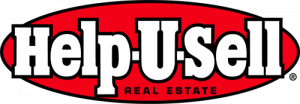The National Association of REALTORS held its convention this weekend in San Diego (my home), so I took today to go down and walk through the exhibit hall. I’ve done this many times before and find it a good way to get the pulse of the business and spot new or at least interesting things. Here’s what I noticed this year:
- Only a handful of the large national real estate firms were present. Of course, Realogy was there with CB, C21, ERA and BH&G in their booth. Prudential was down the aisle a bit. And Keller-Williams was there . . . so was Exit. Oh, and Re/Max. But that was about it. And truth is: most of the booths were pretty empty.
- There were tons of exhibitors focused on Short Sales and REOs. Some were networks you could join, others offered training and there were a few vendors with software for managing the process. It seemed pretty clear, though, if there is a focus, REOs and Short Sales are it.
- Actually, there were very few people in the exhibit hall. Now, it was the last day, and many were probably in meetings, but I remember years past there being crowds pushing through the aisles. Not so today.
I saw only a few things that really excited me:
- Listingbook. I’ve already written about it here. But after wandering the Exhibit Hall and looking at everything that hopes to be similar, I discovered that nothing else comes close. Listingbook is absolutely the best way to share market data and listing information with your clients and potential clients. It keeps you in control and delights them. I had a meeting with their VP of Sales and we will be doing some things with them very soon. Stay tuned. www.listingbook.com
- David Knox. Sometimes what’s tried and true can be fresh and new. David’s message has always been spot on and now, with some upgraded technology, I think he’s in an excellent place to reach even more people. He’s spoken at Help-U-Sell conventions in the past and something tells me we’ll be seeing more of him in the future. www.davidknox.com
- RepTech. They have software that will let you doctor interior and exterior property photos to look as they would if the house was fixed up! Particularly valuable in distressed property situations where it’s important for the customer to see what might be possible, the software shows how the place would look with fresh paint, new landscaping, a pool and more. The lady who did the demo for me ripped the carpet out of this living room, put down hardwood floors and an oriental rug and changed the drapes and it was easy. www.reptechcenter.com
- WindowVision. Remember how we used to post photos and descriptions of our listings in our storefront windows? Well, some of us still do, but these guys have put that idea on steroids. Photos of individual listings are displayed in a lightbox (so they are illuminated and beautiful) and each has a 3 digit number. A customer wanting more information about a listing, walks a couple of steps to the right where there is an actual touch screen device in the window that allows them to access and view more photos and information about the listing on a flat panel display. You can even wire up a speaker and they can hear a description while viewing. This all happens outside your office — at any time of the day or night. Now, here’s what I saw: You could work with these folks to build a small self-contained mall kiosk that could really make a statement and pick up some leads. They’ve actually done this and have examples to show. WindoVision demo
- Finally, I found a memorable chatchkie. Moments to Remember USAis doing a calendar that might actually be kept and used by your customers. It comes on an 8.5 x 11 inch laminated background with a photo of their house and your photo and contact information. The calendar itself is two full years in length (from the day of closing) and each page is big enough for a few notes to be added each day. It’s attractive, it features their house and you and actually has some shelf life. All for $21.90. www.momentsusa.com

 sky was falling! the sky was falling!
sky was falling! the sky was falling!  actually goes on from there.
actually goes on from there.  current real estate markets. Of course, you can’t listen to the ney sayers that surround you. You have to tune them out. But understand that in times like these, when there is a cacophony of negativity and fear, there is also opportunity. These are the times when smart companies grow and gain. These are the times that bring out the Fox in those of us who still have one lurking beneath the surface. My hope is that the Help-U-Sell team gets foxy and we come through this winter with enough fried chicken to last decades!
current real estate markets. Of course, you can’t listen to the ney sayers that surround you. You have to tune them out. But understand that in times like these, when there is a cacophony of negativity and fear, there is also opportunity. These are the times when smart companies grow and gain. These are the times that bring out the Fox in those of us who still have one lurking beneath the surface. My hope is that the Help-U-Sell team gets foxy and we come through this winter with enough fried chicken to last decades!